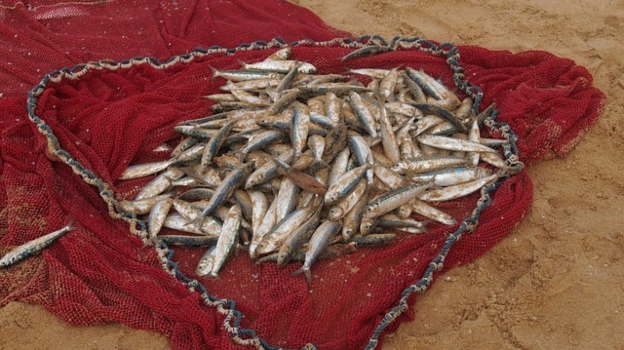This is Especially Important When Fishing for People
When some of my family was on vacation staying in a house on a lake, they hired a guide to take them fishing. They met the guide at the dock at 4:30 in the morning and went fishing. They were back before lunch with a nice catch of fish. Needless to say, they had a fish fry.
This guide knew what time to go so that they would have the best opportunity to catch fish. The guide knew where on the lake to go to find the fish. The guide also knew what to do and how to catch the fish.

As Christians we’re called to fish for people
When fishing for people we need a guide. Someone who knows when to fish, where to fish, and how to fish.
Jesus is our guide when fishing for people.
Last week’s message was about Peter being introduced to Jesus. This week Peter is invited to follow Jesus.
In Matthew 4:18-20 Jesus is walking along the shore and sees Peter and Andrew fishing. He calls to them to follow Him and He will show them how to fish for people.
In Luke 5:1-11 Jesus was preaching on the shore of the Sea of Galilee. The crowds were pressing in on Him. He stepped into a boat and asked Peter to push Him offshore a little.
“When Jesus had finished speaking, He told Peter to go out to deeper water and let down his net. Simon replied, “we worked hard all last night and didn’t catch a thing. But if you say so, I’ll let the nets down again.” And this time their nets were so full of fish they began to tear! A shout for help brought their partners in the other boat, and soon both boats were filled with fish and on the verge of sinking.

When Simon Peter realized what had happened, he fell to his knees before Jesus and said, “Oh, Lord, please leave me—I’m such a sinful man.” For he was awestruck by the number of fish they had caught, as were the others with him. His partners, James and John, the sons of Zebedee, were also amazed.
Jesus replied to Simon, “Don’t be afraid! From now on you’ll be fishing for people!” And as soon as they got to shore, they left everything and followed Jesus.”
Like Peter, we are invited to follow Jesus and fish for people.
Just like my family met the guide where and when he said, went with him to the right place, fished like he told them, and brought home a catch of fish. Jesus will do the same if we show up when and where He tells us, go where He tells us, and do what He tells us. We too can bring home a catch.
Now go do some fishing!











